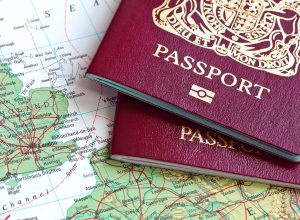Arriving in the Netherlands: Financial Tips for New Students
The new academic year is approaching quickly, and many of you will soon arrive in Wageningen. I understand the busyness with arrangements, planning, and finding a proper rain jacket! You might also wonder if you need to arrange anything financially in the Netherlands. Luckily, I will explain everything you need to know and share my financial tips after living and studying here for almost three years. So, sit comfortably and enjoy!
Payments and finances in general
Let’s start with how most people pay in the Netherlands. In my experience, you won’t need any cash. Of course, you can use cash if you prefer, but I rarely do. I don’t remember the last time I used actual money—maybe once at the market a year ago? You can use bank cards everywhere, and phone payments are widely accepted. So, if you were worrying about bringing a suitcase of cash, you don’t need to.
Cards accepted in the Netherlands
Here, you will be able to use most of the standard types of bank cards. Visa and MasterCard are very common. American Express is also sometimes accepted. Definitely, the favorite card type is Maestro, which isn’t as common in other European countries. However, currently, in all supermarkets in Wageningen, you can use these cards to pay.
Do you need a Dutch bank account?
The answer depends on a few factors. First, are you coming here for an exchange, or will you study here for few years? Another factor is if you are from the EU and if your home country uses the Euro. For example, if you’re from Italy and coming for an Erasmus exchange, you might not need a Dutch bank account to handle your financial matters. But if you’re from Canada or Indonesia and planning to stay for your MSc, opening an account might be useful. It can make life easier for subsidies, rent, insurance, salary, etc. Also good to know is the fact that most of the Dutch banks offer student accounts for free! So there are minimal or no fees at all involved in applying for such an account.
Opening a bank account – documents
If you decide to apply for a bank account most of the banks will ask you to provide these documents:
- valid passport

- proof of enrolment from the university
- residence permit
- BSN – Dutch citizen number (you will receive it after registration in the local municipality)
- proof of address
- proof of income/financial support
Of course specific requirements may vary between banks but this is what you should broadly be keeping in mind. 🙂
My personal experience – Revolut
I first came here for a short Erasmus exchange. In Poland, where I’m from, we don’t use the Euro, so I opened a Euro account in a Polish bank (requirement from my home university). Additionally, I had my Revolut account, which I still use daily. Revolut is a bank that allows easy and fast currency exchange.
You can get a physical debit card and use it in the Netherlands and many other countries. Recently, Revolut launched its Dutch brand, allowing users to have a Dutch IBAN. It makes life and the financial situation a bit easier here, as I can receive Dutch subsidies in this account. Therefore, for me, it was a perfect option. I can use it here, in my home country, and probably in any other.
Dutch banks in Wageningen
Even though you can create a bank account online by filling out a form, you can also visit a bank in person. In Wageningen, we have several Dutch banks, so you can make an appointment and go there personally. Below is a list of them with links to their websites and addresses in Wageningen.
ABN Amro – Hoogstraat 11, 6701 BJ Wageningen
ING – Hoogstraat 73, 6701 BP Wageningen
Rabobank – not in Wageningen, but in a city close by – Galvanistraat 2, 6716 AE Ede
Revolut – no physical store
First expenses
After coming to Wageningen and settling into your new Dutch life, you’ll need to pick up some essentials such as furniture, a bicycle, textbooks, and rent. Therefore, your expenses might be higher than usual. Trust me, I know how a quick trip to Action (sadly, the closest Ikea is near Arnhem or in Utrecht) for “just few things” can turn into buying way more than you planned. That’s why it’s a good idea to budget carefully for your first month to keep everything on track. 🙂
I hope this will help you finding out what’s the best for you! Good luck and hope to see you soon in Wageningen. 🙂
Groetjes,
Maria

